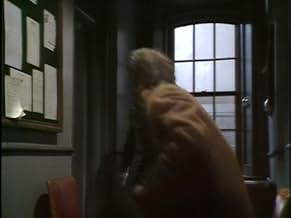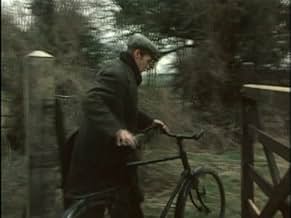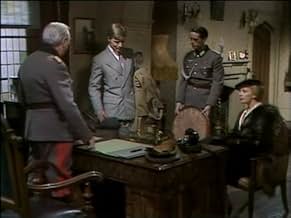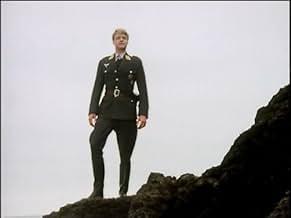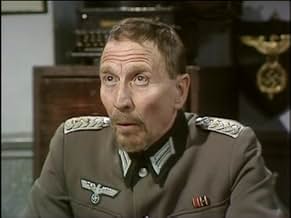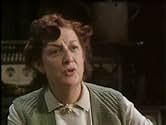During the Second World War, the inhabitants of Guernsey, one of the Channel Islands, try to cope with the German occupation.During the Second World War, the inhabitants of Guernsey, one of the Channel Islands, try to cope with the German occupation.During the Second World War, the inhabitants of Guernsey, one of the Channel Islands, try to cope with the German occupation.
Browse episodes
Featured reviews
This is not a new production, with all the bells and whistles we expect of modern productions, but it is a very fine British drama, well written scripts and the best of performances (with episode actors who went on to be substantial TV and Stage personalities). The stories it tells are well researched, chronicling a period of history not widely told, and therefore a valuable record of WW II war time struggles. For those who have enjoyed the 2018 movie THE GUERNSEY POTATO PEEL PIE LITERARY SOCIETY, this tells more of those stories (within the TV production capabilities of 1978). This second series was even more substantial than the first, and I give the whole series an 9 (superb) out of 10. {Occupation War Drama}
Guernsey under occupation in WW2. One thing that struck me were casting similarities to Colditz (1972), played out on a larger stage. Alfred Burke plays Bernard Hepton's role as the firm but fair German in charge. Simon Cadell has Anthony Valentine's part as fanatical Nazi breathing down his boss's neck. Bernard Horsfall has a similar responsibility to Jack Hedley as hard pressed interlocutor between the Germans and the captives. There is even Colditz actor Richard Heffer, playing a similarly dashing daredevil. The big difference is the presence of women, and some of the most memorable episodes concern them.
After the Ball. At a dance instigated by Reinicke (Cadell), a young Austrian soldier picks up an attractive Guernsey girl. But subsequent event prove disastrous for both of them.
The Jerrybag. The sad story of Betty, not bad looking but somewhat dowdy and lacking self esteem. She has an affair with, and gets pregnant by a German soldier, is ostracised by her fellow islanders, and her lover later comes to grief on the Eastern front. Betty reappears three years later in The Right Blood, where her luck fails to improve.
My one grumble is that the conclusion of the final episode Escape is unnecessarily grim, and one felt short changed that Reinicke failed to get his deserved comeuppance.
After the Ball. At a dance instigated by Reinicke (Cadell), a young Austrian soldier picks up an attractive Guernsey girl. But subsequent event prove disastrous for both of them.
The Jerrybag. The sad story of Betty, not bad looking but somewhat dowdy and lacking self esteem. She has an affair with, and gets pregnant by a German soldier, is ostracised by her fellow islanders, and her lover later comes to grief on the Eastern front. Betty reappears three years later in The Right Blood, where her luck fails to improve.
My one grumble is that the conclusion of the final episode Escape is unnecessarily grim, and one felt short changed that Reinicke failed to get his deserved comeuppance.
I came across this drama some months ago two-thirds of the way through its showing on the "Yesterday" channel here in the UK. Now it's being repeated again, and I've seen perhaps half the episodes. Hopefully I'll get around to seeing them all when/if it's repeated again! It's well worth watching and explores some interesting situations between the occupiers and residents. But it never ran to a third series, which would have had to deal with a worsening situation as the war progressed, supplies dried up and Jewish citizens deported.
I'm not one for characterising all, or indeed many, Germans in the war as Nazi thugs, but those most frequently featured in the series do come across as particularly humane, in fact benign - with the exception, of course, of Reinicke. I assume that all the characters are fictitious. With the series being first screened 35 years after the Occupation there would have been plenty of Guernsey people alive to have commented on the authenticity.
Perhaps now and then things get a bit stagey, that is, as it's a stage play, with some quite wordy dialogue. But I am looking forward to viewing the episodes I haven't seen yet.
I'm not one for characterising all, or indeed many, Germans in the war as Nazi thugs, but those most frequently featured in the series do come across as particularly humane, in fact benign - with the exception, of course, of Reinicke. I assume that all the characters are fictitious. With the series being first screened 35 years after the Occupation there would have been plenty of Guernsey people alive to have commented on the authenticity.
Perhaps now and then things get a bit stagey, that is, as it's a stage play, with some quite wordy dialogue. But I am looking forward to viewing the episodes I haven't seen yet.
I caught this series again recently on UK's wonderful Talking Pictures TV channel; probably the 4th or 5th time since first viewing it back in 1978/79.
All episodes are very interesting with thought-provoking moral dilemmas; the acting throughout is excellent; one really cares about the participants.
It was rather "controversial" in its day with its sympathetic treatment of the German occupiers, showing them as often just as hapless as the occupied, quite a departure from the usual British "plucky hero" films that dominated from way back in the '50s.
It is difficult to commend any individual actor as all the main ones are so perfect in their roles; if forced, I guess it would have to be either Bernard Horsfall as the doctor or Alfred Burke as the Major (later Colonel) who has come from the world of academia.
Similarly, how does one cite a favourite episode? For me it has to be the second series' one where the new General gives the Alfred Burke character a severe rollicking, then reveals a relenting surprise! The tension during that interview is worthy of Tarantino.
The final episode is desperately sad; but I don't get the impression that the producers were planning to end the run there. What a shame that we never got a third season-I can imagine the final episode with the end of the war and the Colonel nobly handing over his command to the Committee.....
Anyway, let's be grateful for what we have.
All episodes are very interesting with thought-provoking moral dilemmas; the acting throughout is excellent; one really cares about the participants.
It was rather "controversial" in its day with its sympathetic treatment of the German occupiers, showing them as often just as hapless as the occupied, quite a departure from the usual British "plucky hero" films that dominated from way back in the '50s.
It is difficult to commend any individual actor as all the main ones are so perfect in their roles; if forced, I guess it would have to be either Bernard Horsfall as the doctor or Alfred Burke as the Major (later Colonel) who has come from the world of academia.
Similarly, how does one cite a favourite episode? For me it has to be the second series' one where the new General gives the Alfred Burke character a severe rollicking, then reveals a relenting surprise! The tension during that interview is worthy of Tarantino.
The final episode is desperately sad; but I don't get the impression that the producers were planning to end the run there. What a shame that we never got a third season-I can imagine the final episode with the end of the war and the Colonel nobly handing over his command to the Committee.....
Anyway, let's be grateful for what we have.
This is not a new production, with all the bells and whistles we expect of modern productions, but it is a very fine British drama, well written scripts and the best of performances (with episode actors who went on to be substantial TV and Stage personalities). The stories it tells are well researched chronicling a period of history not widely told, and therefore a valuable record of WW II war time struggles. For those who have enjoyed the 2018 movie THE GUERNSEY POTATO PEEL PIE LITERARY SOCIETY, this tells more of those stories (within the TV production capabilities of 1978). I give this series an 8 (very fine) out of 10. {Occupation Drama}
Did you know
- TriviaThe Channel Islands were the only British territories to be invaded by Nazi Germany during WWII due it's proximity to occupied France and Channel Islanders suffered hardships because of wartime shortages and brutal Nazi regulations. British troops did not attempt to stage a landing until the official German declaration of surrender in May 1945 (to avoid unnecessary civilian casualties) although RAF reconnaissance planes flew over photographing the islands and British propaganda leaflet drops on the islands occurred towards the end of the occupation to try and demoralize the Germans. Although the German occupying force put up little or no resistance to the British landing expedition, the German C/O refused to hand over control when asked for a formal surrender and was subsequently thrown into a police cell overnight until he changed his mind and accepted the war was over.
- How many seasons does Enemy at the Door have?Powered by Alexa
Details
- Release date
- Country of origin
- Language
- Also known as
- Inimigo à Porta
- Production company
- See more company credits at IMDbPro
Contribute to this page
Suggest an edit or add missing content


